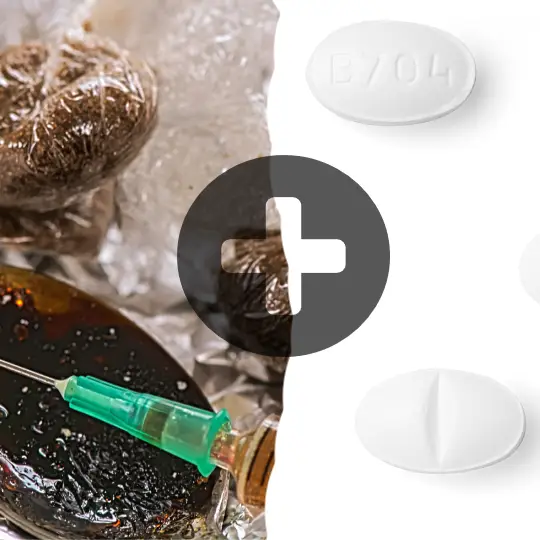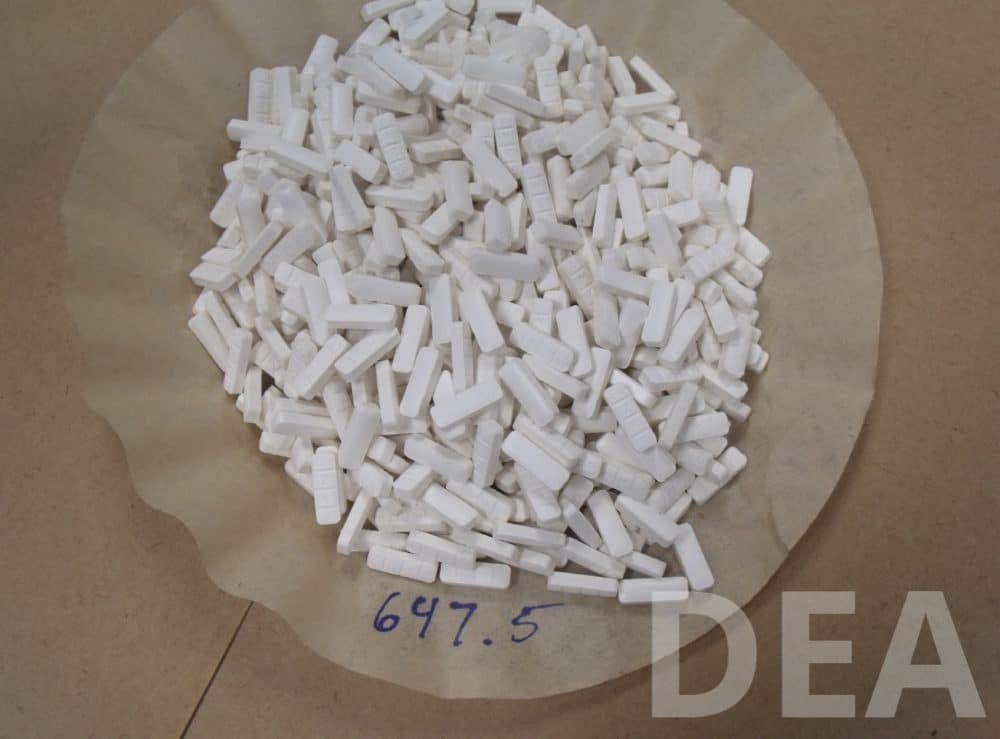Prescription drugs can be as addictive and dangerous as illegal drugs like heroin if they are misused or abused. A 2020 research report by the National Institute on Drug Abuse found more than 16 million people in the U.S. over age 12 misused prescription drugs in the previous twelve months, with over 9 million specifically misusing prescribed pain relievers.1
CDC statistics reported 93,331 drug overdose deaths related to illicit drugs and prescription opioids in the United States during 2020.2 Of those deaths, 16,416 involved prescription painkillers, and 12,290 deaths involved benzodiazepines (benzos).3
While prescription drugs are generally safe and effective if you take them as your doctor prescribed, they can be deadly if misused.
How Are Prescription Drugs Misused?
Misuse of prescribed medications means taking them other than a doctor’s order. Taking a higher dose or more frequent dose than prescribed, taking medication prescribed for someone other than yourself, or taking the drug to get “high” or feel more relaxed are examples of misuse.
Prescription drugs that are most frequently misused or abused include opioid painkillers like OxyContin, Vicodin, and fentanyl; anti-anxiety medications and sedatives like Xanax, Valium, and Ambien; and stimulants like Adderall and Ritalin.4
If you use a prescription drug other than medically intended, you are in danger of developing a dependence or addiction to the medication. Even abusing a prescription medication one time increases your risk of an adverse outcome, including death, while continued abuse significantly increases the risk.
Prescription Drugs May Have Dangerous Effects
Opioids, benzodiazepines, and some sleep medications depress the central nervous system (CNS), including the brain and spinal cord, slowing brain activity and certain vital functions, sometimes to critical levels.
Depressants, anti-anxiety medications, and sedatives can cause the following potentially dangerous physical reactions:5
- Slow breathing rate
- Lower blood pressure
- Extreme drowsiness
- Memory problems
Stimulants may cause:6
- Dangerous increase in body temperature
- Heart problems
- High blood pressure
- Seizures, tremors
- Hallucinations, paranoia
- Aggressive behavior
Prescription drugs can also cause confusion, lack of focus, impaired coordination, reduced alertness, and slowed reaction time, increasing the risk of accidental injury or death.
If you take a prescription drug in combination with other prescribed or illegal drugs, alcohol, or certain over-the-counter drugs, your risk of an adverse reaction increases significantly.
How Can Prescription Drug Use Lead to Addiction?
Commonly abused prescription drugs like painkillers and anti-anxiety medications affect the pleasure and reward center of the brain, triggering the release of chemicals like dopamine and serotonin to cause intense feelings of well-being. Addictive substances cause an unnaturally high surge of “feel good” chemicals, which powerfully reinforces your desire to continue taking the medication.
As you continue using the medication, your body adapts to the dose and demands an increasingly significant amount to deliver the desired effect. When you take higher or more frequent doses than prescribed, you may be starting a cycle that can lead to addiction.7
Even if you take a prescription drug as ordered by your doctor, you may still develop a dependence on it. Once your body adapts to the presence of a painkiller, anti-anxiety medication, or another prescribed medication and you abruptly stop using it, you may experience significant withdrawal symptoms, including intense cravings.
Fear of withdrawal symptoms is one of the major reasons you may opt to continue misusing prescription medication, despite the potential for negative consequences.
You Can Withdraw Safely and Comfortably from Prescription Drugs
Once you develop a dependence on or addiction to a prescription drug and stop using it, your body begins to detoxify as it works to rid itself of the toxic substance and regain a natural equilibrium. This detox process causes withdrawal symptoms, which may occur even if you begin a tapering protocol rather than quitting cold turkey. You may experience physical, mental, and emotional withdrawal effects as your body and brain seek to adjust to the drug’s absence.
Withdrawal symptoms vary depending on several factors and can be extreme. Factors that may impact the severity of withdrawal symptoms may include:
- The specific drug used
- How long you have been taking the drug
- If you routinely take alcohol or other drugs with the prescription drug
- If you have co-occurring mental health or other medical issues
- Whether you stop drug use abruptly (cold turkey) or taper off slowly
Most experts advise against suddenly stopping the use of prescription medication on your own. Instead, talk to your doctor or addiction specialist about how to quit using the drug safely. Your health professional will determine whether a medication withdrawal plan, called a taper, is a better option for you. Tapering means your health professional will gradually reduce the dose you take, which may lessen the severity of your withdrawal symptoms.8
Specific withdrawal symptoms and their severity vary depending on the class of drug used and other factors; however, some symptoms can be highly uncomfortable or even dangerous. When you withdraw under medical supervision, your health team can administer medications approved by the Food and Drug Administration (FDA) to significantly ease your symptoms while addressing your physical and mental needs.
Medical detox takes place in a residential treatment center where you are under constant care from doctors, nurses, and other health professionals trained in treating and managing withdrawal from addictive substances. Professionals monitor your vital signs like heart rate, blood pressure, and temperature 24/7 and can administer medication to ease anxiety and other withdrawal symptoms. Close medical supervision ensures that any withdrawal complications can be addressed immediately.
Most medical experts agree medical detox is the safest and most comfortable first step in recovery from dependence or addiction to prescription or illicit drugs and alcohol.9
Gallus Medical Detox Centers are recognized leaders in medical detoxification and addiction medicine. Offering the highest levels of expertise, decades of experience, and a superior customer experience in our state-of-the-art facilities, Gallus is proud to help each patient on their journey to long-term recovery.
Sources
- https://nida.nih.gov/publications/research-reports/misuse-prescription-drugs/what-scope-prescription-drug-misuse#:~:text=How%20many%20people%20misuse%20prescription%20drugs%3F%20Among%20people,prescription%20psychotherapeutic%20drug%20in%20the%20past%2012%20months
- https://www.cdc.gov/nchs/pressroom/nchs_press_releases/2021/20210714.htm
- https://nida.nih.gov/drug-topics/trends-statistics/overdose-death-rates
- https://www.mayoclinic.org/diseases-conditions/prescription-drug-abuse/symptoms-causes/syc-20376813
- https://nida.nih.gov/publications/drugfacts/prescription-cns-depressants#:~:text=Prescription%20CNS%20depressants%20are%20medicines%20that%20can%20slow,depressants%20usually%20feel%20sleepy%20and%20uncoordinated%20at%20first
- https://www.mayoclinic.org/diseases-conditions/prescription-drug-abuse/symptoms-causes/syc-20376813
- https://www.mayoclinic.org/diseases-conditions/prescription-drug-abuse/symptoms-causes/syc-20376813
- https://www.mayoclinic.org/diseases-conditions/prescription-drug-abuse/in-depth/tapering-off-opioids-when-and-how/art-20386036
- https://store.samhsa.gov/sites/default/files/d7/priv/sma15-4131.pdf



 Steve Carleton
Steve Carleton 